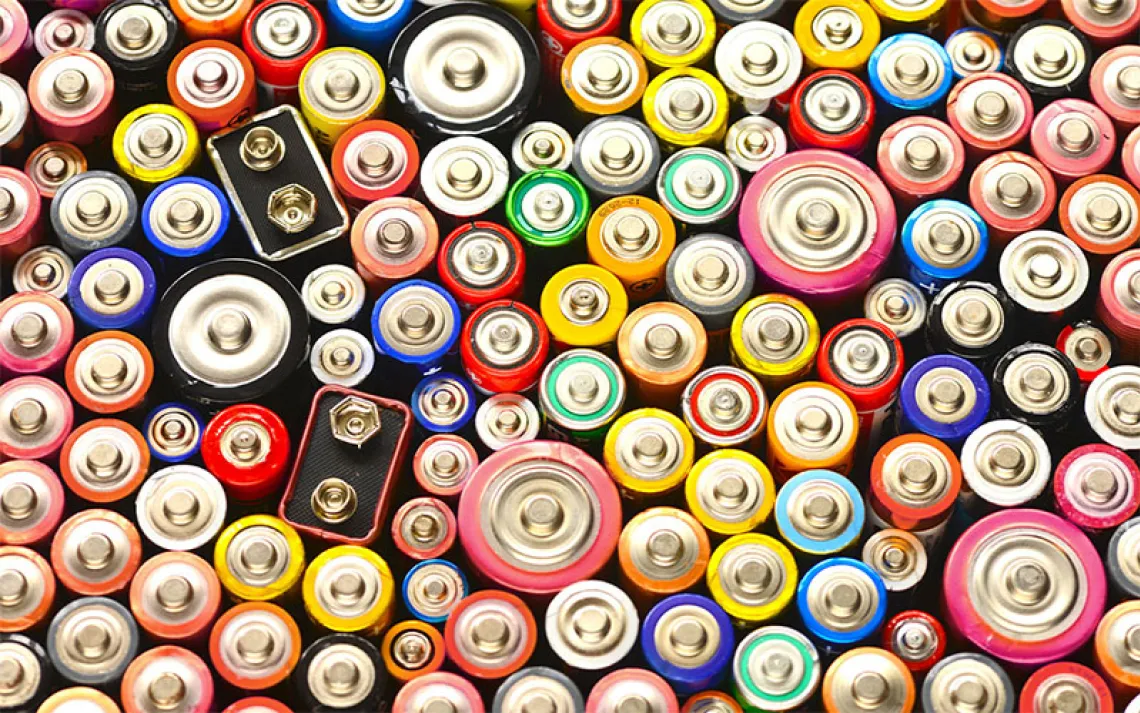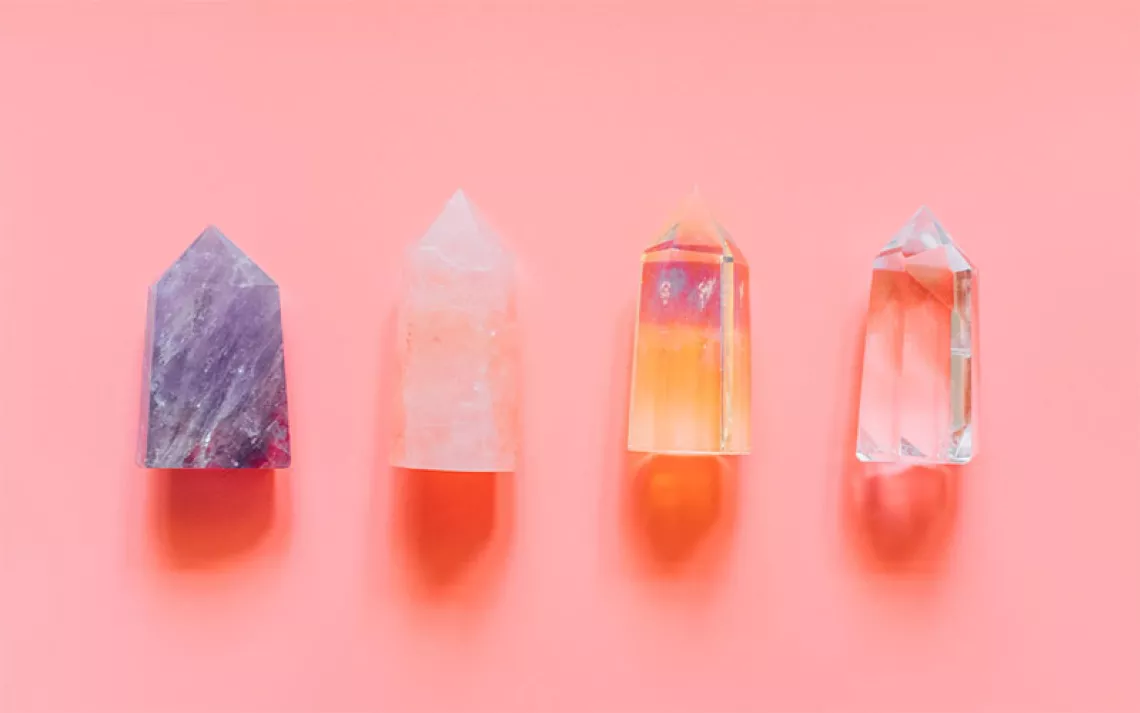How to Be a Responsible Member of the Interwebs
Green tips for searching, sharing, streaming, coding, dusting, and more

Photo by Magnilion/iStock
By 2030, the internet could contribute as much as 25 percent of all polluting greenhouse gas emissions. Streaming a video in high instead of standard definition on a phone generates about eight times more emissions. Using a cellphone network is at least twice as energy-intensive as using wi-fi. Each time you search online or send a 1MB email, it’s as if you left a light on for an hour.
Before you crawl under a rock, rock out to this: There are greener ways to use your phone and web devices, and learning how to reuse instead of replace them is key. Extending the life of electronics by just a year in the EU would save as much polluting carbon emissions as taking 2 million cars off roads each year.
Here are some tips for how to extend the life of your electronics, surf the web with the planet in mind, and in general, be a responsible user-member of the digital universe.
Preventing eye strain and getting better sleep
Change your cellphone or computer setting to dark or night mode, meaning it’ll display mostly black and gray. Or download the free f.lux app for Macs and set Color Effects to Darkroom.
Reduce your monitor’s brightness. If you go from 100 percent to 70 percent, it reduces its energy consumption by 20 percent. I like my brightness at 0 percent. Blue-light filtering glasses can prevent eye strain too. (Ask me where to get greener glasses, even sunglasses!)
Surfing the web
Try the new Searx search engine, which tells you what websites run on clean energy. Searx doesn’t track your searches, so you won’t be stalked by ads based on your online behavior. Unlike many search engines, it’s open source.
If you fall down rabbit holes when you search online, try to close unused web browser tabs. Or store tabs you want to use later with Chrome’s Session Buddy.
For music or podcasts, try to download instead of stream. Downloading a song to your device uses about 5 MB of data. Streaming it 20 times can use 100 MB.
If you like TED Talks, you can listen to them at TED Talks Daily instead of watching them. Or just read TED Talk transcripts!
Watching videos
Stream a video in standard definition instead of high definition. You might not even notice the difference on a small screen. It’s more fun and sustainable to make fun of bad movies with friends when they're on TV or streamed over wi-fi, instead of watching over a cellphone network.
Block auto-play videos easily in the Firefox web browser. Or download the Chrome web browser extension called Disable HTML5 Auto-play. (Google Meet didn’t work for me, but I could use Zoom and make other video calls.) For Android phones, change your settings. On Macs, see how to block auto-play in Safari.
Deleting digital clutter to extend the performance of your device
Channel your inner Marie Kondo and keep only digital files and accounts that spark joy. That helped me say goodbye to my dreadfully dorky dance videos. They were also my biggest files.
Feel even more joy as you unsubscribe from unwanted emails and empty your trash on your phone and computer. While you’re at it, delete files and games you don’t use.
You’re almost done! You should also clear your phone’s cache occasionally. On Android phones, go to Settings, click Storage, then the app, then Clear Cache. On iPhones, click Settings, Safari, Clear History and Website Data, then Clear History and Data. For extra credit, see which apps take the most space and reinstall them. On an iPhone, click Settings, General, Usage.
Backing up files and “cloud” storage and sharing
“The fluffy word ‘cloud’ doesn’t accurately describe the sweaty person shoveling polluting coal to power your electronics use,” Chris Adams, the Green Web Foundation (TGWF) codirector, told me. But I saw dark clouds parting and rainbows and unicorns appearing when he told me about cloud services for the average person that run on green infrastructure that TGWF will list soon, such as Nextcloud file storage services. “Nextcloud uses open-source software. So they don’t spy on your data,” said Adams. Pick one cloud instead of accidentally backing up the same files in more than one and spewing more pollution than necessary.
Figuring out if a website or app runs on green energy

Make every day an Earth Day
Get articles like this one sent directly to your inbox.
With this action you affirm you want to receive Sierra Club communications and may vote on policy designated by the Sierra Club Board.
Type any website into Ecograder. It gives a score and tips, such as how each website can increase search engine rankings, which makes it easier for people to find what they need without polluting more with unnecessary searches. It also discloses if a website uses a web host on TGWF, the only list I could find that verifies if a host runs on cleaner energy like solar and wind. When I asked Adams if web hosts on TGWF’s list might need to buy power or buy carbon offsets, he said, “Yes, because renewable energy is intermittent due to weather. Almost no websites can run 100 percent of the time on renewable energy.”
Sadly, I need to redo my personal website because it’s currently hosted on Tumblr, which I just learned is not using a green web host. And though I use DreamHost, which is on TGWF’s list, its email provider has no spam button, something I emailed them about months ago.
TGWF now lists websites powered by cleaner energy that can host your blog. In the meantime, the greenest platform I could find was Medium. According to Ecograder, though Medium isn't hosted by a company that runs on cleaner energy, its host buys renewable energy credits. LinkedIn, Pinterest, Substack, TikTok, Tumblr, and Twitter were not using TGWF web hosts. I couldn’t get results for Facebook (which owns Instagram) because it appears to have blocked Ecograder.
Cleaning your keyboard
Aerosols (such as compressed air duster cans spewing cold “air”) are not reusable. And they spray polluting fluorocarbon propellants that can contribute to climate change. Give your electronics and cameras a longer life by blowing with a reusable sucker-looking squeeze bulb called Giotto’s Rocket Air Blower. Or turn your keyboard upside down and tap it to free it from your snacks. Brushes and vacuums work too.
More info
To create more user-friendly and greener websites, apps, or software, choose coders and user experience designers that rely on tips from Sustainable.Dev or Gather Round.
ClimateAction.tech is embedding sustainability into the work of all staff and powering servers with cleaner energy.
Coders can prevent companies from co-opting their software to extract more fossil fuels. At the Climate Strike License on Github, see which popular open-source projects are possibly being used for evil!
Here’s how to repair and responsibly recycle your electronics.
All this high-tech makes me want to only listen to my low-tech, embarrassing mixtapes and watch videos on tape. If you want to recycle yours, ask me where!
 The Magazine of The Sierra Club
The Magazine of The Sierra Club



